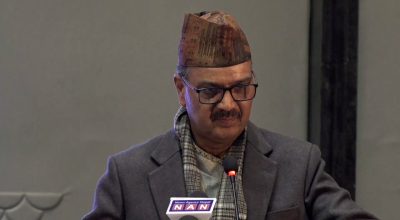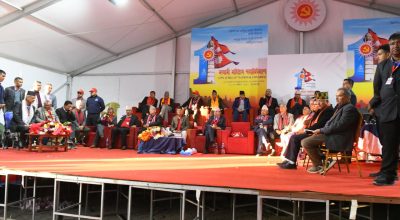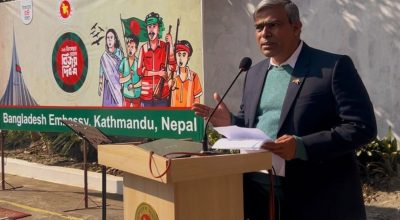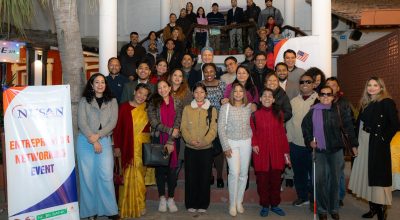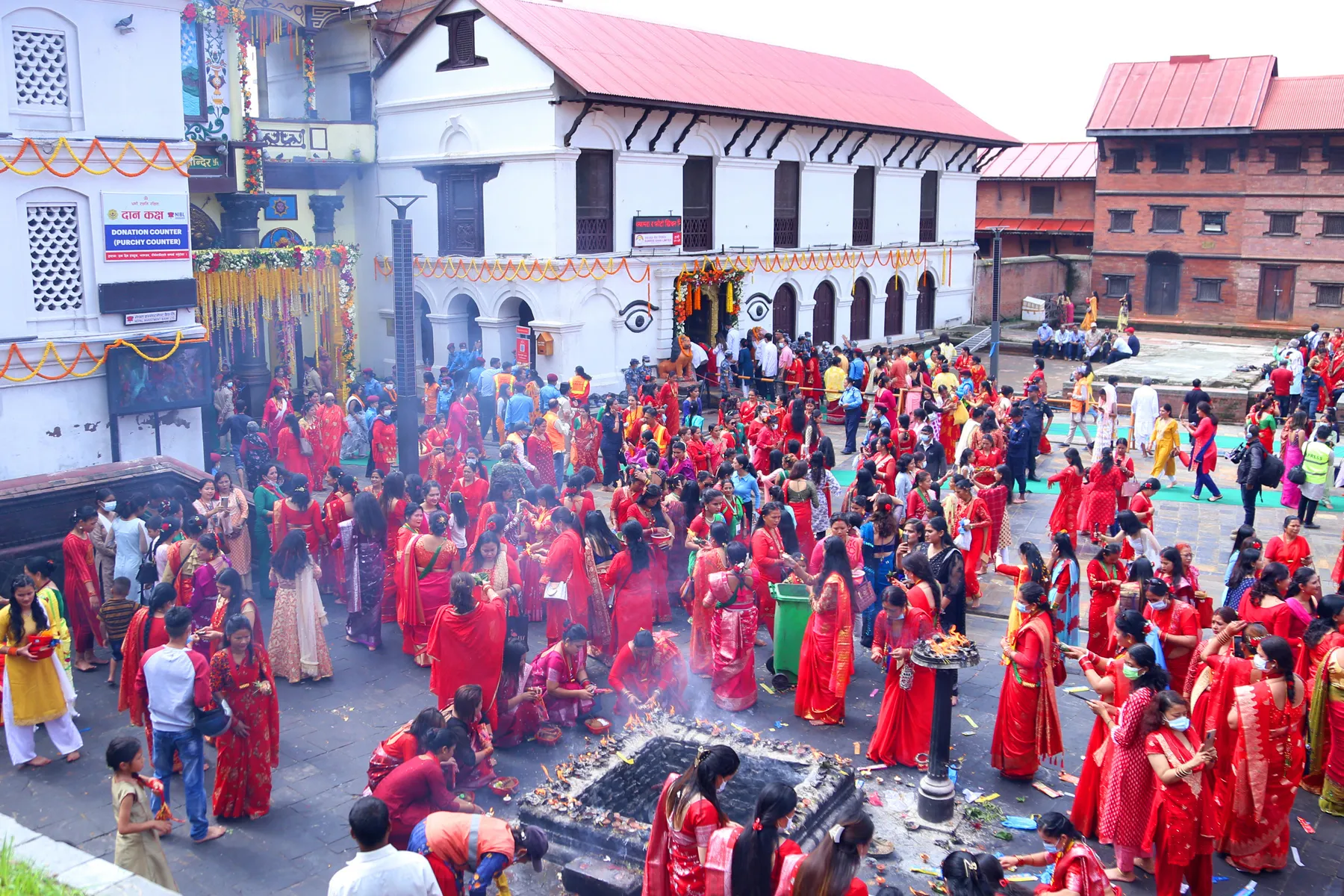
Kathmandu, Sept 18: The festival of ‘Teej,’ a big festival observed by Nepali Hindu women, is being celebrated in a grand manner, wishing for prosperous life and perpetual luck throughout the country today.
As per the tradition, women on this third day of dark half of the lunar month that falls in the Nepali month of Bhadau observe fasting and wish for a prosperous life while observing the festival.
The ‘Teej’ festival is also celebrated as ‘Haritalika’. All the Hindu Nepalese women offer prayers and worships at Pashupatinath Temple and other temples of Lord Shiva in other parts of the country.
According to the ‘Skanda Puran’ (a religious scripture of the Hindus), this festival got the name ‘Haritalika Teej’ as it was on this very day in the ‘Satya Yug’ (golden epoch of truth) that the daughter of the Himalayas, Parvati, was hidden by her maids because of her refusal to marry Lord Vishnu.
A day before ‘Teej’ on the night of the second day of the fortnight in the month of Bhadau, women enjoy a variety of delicious dishes known as ‘Dar’ at their parental home where they are especially invited for this purpose.
The women on the day of ‘Teej’ are seen engrossed in jubilant dancing and singing in a care-free mood. Women put on bangles, ‘Pote’ (a necklace made of glass beads), ‘Tilahari’ and ‘Sindur’ (crimson powder) considered the symbols of good luck and dress themselves up in red saris or other red outfits and adorn themselves with different kinds of ornaments.
Women in the morning today take ritual baths and offer worship while in the evening they pay homage to Lord Shiva, light lamps and spend the night awake. The next day, the last day of the festival is marked by the women performing religious and traditional rituals such as use of 108 stems of ‘Datiwan’ (a kind of holy plant) while bathing using mud.
They also worship the legendary ‘Saptarishis’ (seven sages) and offer alms, thus completing the fast. Both married and unmarried women perform various ‘pujas’ (worships) and observe fasting, praying for fulfillment of their wish for a happy and prosperous conjugal life.
As per the tradition, married women celebrate this festival wishing long life for their husbands while the unmarried women who worship Lord Shiva and Parvati are believed to find an eligible groom. RSS






